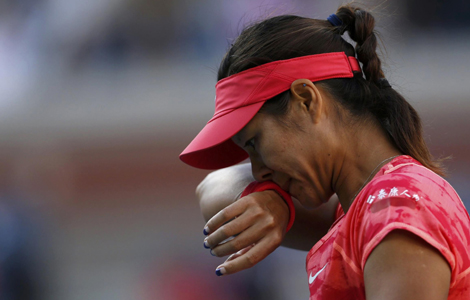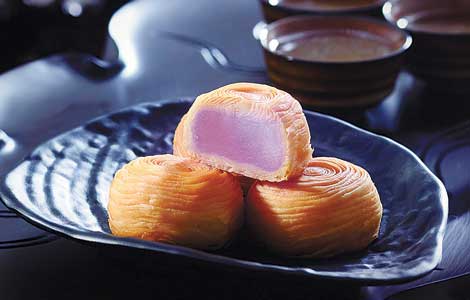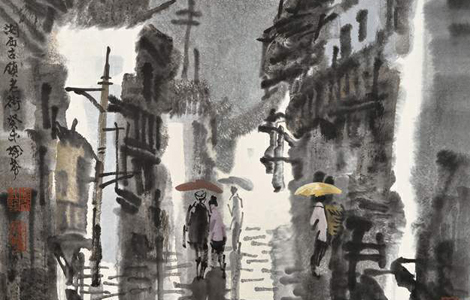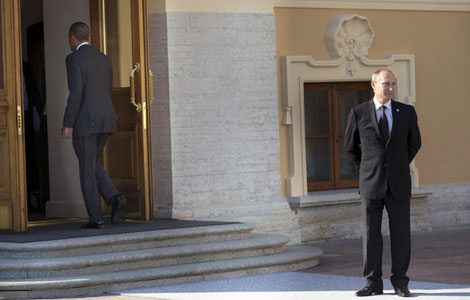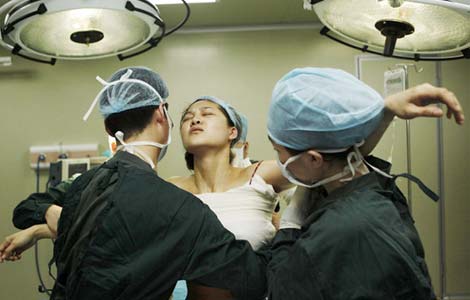ROK widens Japan fish ban
Updated: 2013-09-07 10:02
By Agence France-Presse in Seoul (China Daily/Agencies)
|
||||||||
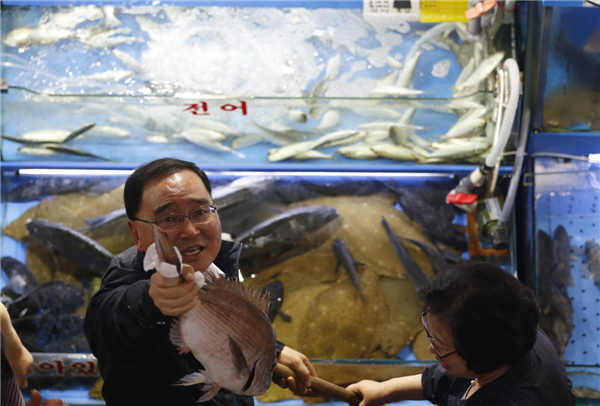 |
|
South Korea's Prime Minister Jung Hong-won holds up a Japanese snapper during his visit to the Noryangjin fisheries wholesale market in Seoul September 6, 2013. South Korea banned all fishery imports from a swath of Japan around the crippled Fukushima nuclear plant on Friday, dealing another blow to Tokyo's credibility on the eve of the capital's bid to host the Olympics.[Photo/Agencies] |
South Korea expanded its ban on Japanese fisheries products on Friday over fears of contamination from the crippled Fukushima nuclear plant, accusing Tokyo of not providing enough information on the crisis.
Consumption of fish products in South Korea has dropped sharply in recent weeks as Japanese workers struggle to contain leaks at the tsunami-wrecked facility.
Highly toxic water may have made its way into the Pacific Ocean, operator Tokyo Electric Power has admitted. The utility also says up to 300 metric tons of mildly radioactive groundwater is making its way into the sea every day.
South Korea had previously imposed an import ban on dozens of Japanese fisheries products produced in Fukushima and seven other prefectures following the meltdown at the nuclear plant, triggered by the 2011 tsunami.
The government has now widened the ban to take in all such products from Fukushima and the seven other prefectures -Ibaraki, Gunma, Miyagi, Iwate, Tochigi, Chiba and Aomori.
The Ministry of Oceans and Fisheries said it had taken action as fears rose in South Korea.
"The measure comes as our people's concerns are growing over the fact that hundreds of tons of radiation-contaminated water leak every day from the site of Japan's nuclear accident in Fukushima," the ministry said in a statement.
"The government has concluded that the information provided by Japan so far has failed to make it clear how the incident will develop in the future."
"Under the new measure, all fisheries products from this region will be banned regardless of whether they are contaminated or not," the ministry said.
The ministry also urged Tokyo to immediately provide accurate information on the leaks of contaminated water.
In Tokyo on Friday, Chief Cabinet Secretary Yoshihide Suga challenged South Korea over the move.
"We are carrying out strict safe management on foods, including fishery products, based on international standards," he said.
"We would like the South Korean government to respond, based on scientific evidence."
Acknowledging global concerns over the "haphazard" management of the crisis by TEPCO, Prime Minister Shinzo Abe this week said his administration will step in with public money to get the job done.
Most Viewed
Editor's Picks

|

|

|

|

|

|
Today's Top News
US spy agencies decry latest Snowden revelations
Obama rejects pressure to abandon Syria plan
Open up private market, Li says
Xi warns Abe over Diaoyu Islands
Xi, Obama discuss Asia-Pacific
Think tank seeks G20 secretariat
Speech earns praise from global leaders
NASA back to the moon
US Weekly

|

|


